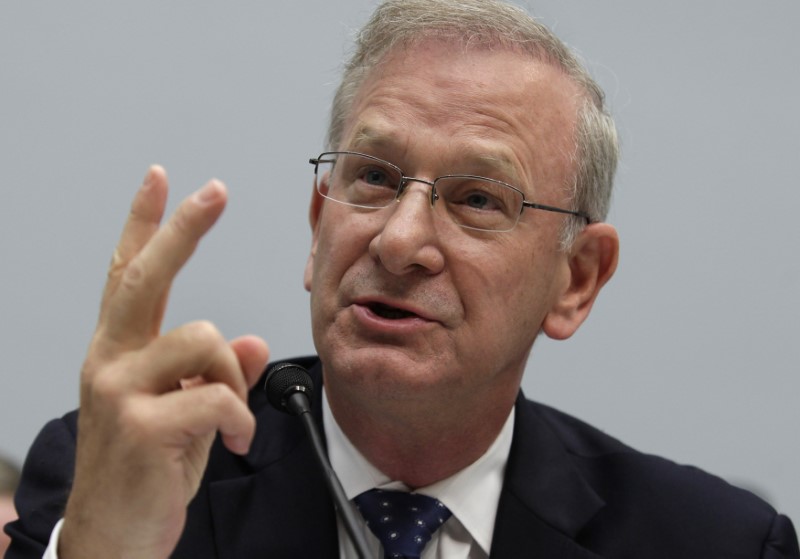By Lisa Lambert
WASHINGTON (Reuters) - Big banks say tight U.S. financial regulation forces them to sit on capital and not put money to work by making loans, but in truth they choose to distribute all of their earnings to investors instead of lending them, a long-time regulator said in a letter to two powerful senators released on Wednesday.
Federal Deposit Insurance Corporation Vice Chairman Thomas Hoenig, frequently a Wall Street gadfly, has long said the biggest banks should be required to set aside more capital so they can weather a crisis without devastating the financial system.
Banks contend the Dodd-Frank Wall Street reforms resulting from the 2007-09 financial crisis, including heightened capital requirements, are too constricting and force them to pull back on loans.
Hoenig, who was a high-ranking Federal Reserve official during the crisis, cautioned Senate Banking Committee Chairman Mike Crapo and the committee's senior Democrat, Sherrod Brown, "against relaxing current capital requirements and allowing the largest banks to increase their already highly leveraged positions."
"I recognize that dividends are an important factor for investors and they should be rewarded for the risks they take. But it is also true that funding business growth, assuring future economic success, and promoting capitalism depend upon the retention of earnings," he wrote in the letter, dated Tuesday.
Using public data to analyze the 10 largest bank holding companies, Hoenig found they will distribute more than 100 percent of the current year's earnings to investors, which could have supported to $537 billion in new loans.
On an annualized basis they will distribute 99 percent of net income, he added.
He added that if banks kept their share buybacks, totaling $83 billion, then under current capital rules they could boost commercial and consumer loans by $741.5 billion.
"While distributing all of today’s income to shareholders may be received well in the short run, it can undermine their future returns and weaken the growth outlook for the larger economy," he wrote.
The House of Representatives passed legislation this year letting banks choose between meeting higher capital requirements or complying with Dodd-Frank. Most said they would choose Dodd-Frank.
Banks receive higher returns on their equity from shareholders reinvesting dividends than from lending, said Greg Baer, president of The Clearing House Association, a banking trade group.
"If you wanted them to hold those funds and lend them out, you’d lower their capital requirements, not raise them,” he said.
